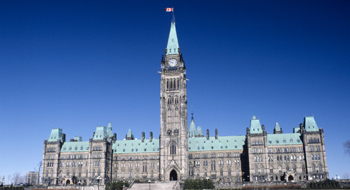

Scott Perkin fondly recalls his appearance before the House of Commons Standing Committee on Finance in 2010. The Canadian pension landscape was being shaken by funding challenges, record-low interest rates and the protest in September of that year by Nortel pensioners angered by the windup of their $2.5-billion underfunded plan. As president of The Association of Canadian Pension Management (ACPM), Perkin expected he’d be asked to outline the association’s position on one or two topics. Instead, committee members peppered him with questions on a host of issues.


The Conservatives have accepted a proposal to have Members of Parliament and senators contribute more to their pensions plans.


B plans across the country have faced significant issues in recent years, including low interest rates, changing demographics (such as longer life expectancy and an aging population) and unstable capital markets. All of these factors threaten the long-term sustainability of plans. The shared-risk model seeks to address these issues with a regime where there is a focus on robust risk management to promote benefit security and pension plan sustainability.


The federal government has created the pooled registered pension plan (PRPP) in the hopes that provinces would each adopt a bill creating a similar product for their own pension jurisdiction.


The federal government stepped back into the House of Commons yesterday, laying some not-so-conservative changes on the table.


The California government today passed a pension reform bill that the government is calling the “biggest rollback to public pension benefits in the history of California pensions.” The new legislation will raise the minimum retirement age for the state’s public service and will reduce pension benefits for new public workers—moves that California Governor Jerry Brown […]


The Singapore parliament has passed a bill to abolish the Parliamentary Pensions Act. Under the act, political office holders who have served at least eight years are eligible for a pension.
Two rather contentious reports on public sector pensions were published recently—one by the Canadian Taxpayers Federation (CTF) and one by the Canadian Federation of Independent Business (CFIB) . While they obviously constitute an attack on public sector pensions, they also bring attention to an apparently untenable position held by the federal government.


Canadians are often told they need to save more for retirement and to start saving sooner. Life expectancy is increasing and investment returns are low, so the cost of providing retirement income is much more than it used to be. Saving more seems like the prudent thing to do.


The Canadian Taxpayers Federation (CTF) released new data today showing the gap between the pension benefits of government employees and those in the private sector and is calling for nationwide changes to be made to public pension plans.